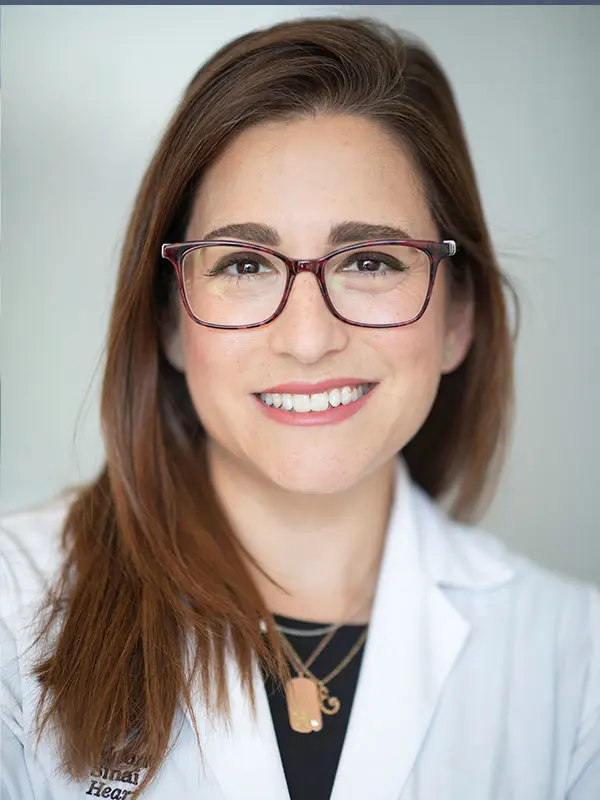Related Article
The Icahn School of Medicine at Mount Sinai has long been a pioneer in genetics, starting with the establishment of BioMe, one of the country’s first medical record-linked biobanking programs in 2006, and continuing with the recently announced Mount Sinai Million Health Discoveries Program to genetically sequence 1 million Mount Sinai patients within the next five years.
The Department of Medicine’s newest entity, the Division of Genomic Medicine, builds on that work with a goal as ambitious as it is sweeping: to make genomic medicine a routine part of patient care for the diagnosis, treatment, and prevention of all types of disease.
“Genomics provides extremely rich data about an individual’s risk for disease over the course of their entire life, and we want to deliver on its enormous promise by integrating it into health care decisions that result in the most effective management of our patients,” says Eimear Kenny, PhD, Mount Sinai Professor of Genomic Medicine. “That involves working closely with our primary and specialty care physicians to empower them with the knowledge and tools they need to interpret genetic findings, recognize genomic risk, and use those insights to respond to each patient’s unique health care needs.”
That effort is well underway through patient-centered clinical applications, collaborative research, and innovative education and training programs. The Division’s Genomic Health Clinic, for example, is among the first of its type to engage directly with individuals seeking one-on-one genomic risk evaluation and testing from an experienced medical geneticist-genetic counseling team (see our accompanying article on the Genomic Health Clinic).
In the field of research, the Division of Genomic Medicine partners with Mount Sinai's Institute for Genomic Health to conduct cutting-edge work “to bring genomic information into the clinic for everyday health care, and not just for some of the specialty areas where it currently fits,” according to Dr. Kenny, who is Founding Director of the Institute.
A current clinical trial, for example, is investigating the use of polygenic risk scores—which aggregate information spanning the entire genome—to provide individuals from diverse populations with precision reports on their risk exposure to common diseases. For this study and others, the computation-driven Institute relies heavily on artificial intelligence and machine learning to scale up its research.
“We are building programs to turn genomic results from the Discoveries Program when they are medically actionable into follow-up care designed to benefit our patients.”
- Eimear Kenny, PhD
In education and training, the Division is one of the first to create a Genomic Medicine Training Track for residents, fellows, and interns interested in gaining a deeper knowledge of genomics and its applications within clinical care, especially ordering and interpreting genetic tests. The online curriculum, now in its third year with six participants, will receive National Institutes of Health support to carry out the next phase of its growth.
The Division’s influence is already being felt across Mount Sinai through its screening programs for a variety of hereditary diseases. It has teamed up with Amy Kontorovich, MD, PhD, Director of the Center for Inherited Cardiovascular Disease, for instance, to test individuals for amyloidosis, a multisystemic disorder caused by a mutation in the transthyretin (TTR) gene. Amyloidosis manifests as cardiovascular-neurological-musculoskeletal symptoms, and African American and African populations are at higher risk for it. “We’ve successfully tested for this condition in patients enrolled in the Mount Sinai BioMe Biobank and referred those who may have a predisposition to our High-Risk Amyloidosis Clinic for professional care,” notes Dr. Kenny.
Similarly, the Division is leveraging the Health System’s massive bio repository to identify mutations in the breast and ovarian cancer susceptibility genes BRCA1 and BRCA2. As a result of this growing screening initiative, numerous patients have been referred for follow-up care to oncologists and other health specialists at Mount Sinai.
No project promises more profound results, however, than the Mount Sinai Million Health Discoveries Program, which will sequence and analyze the DNA of a million participating patients, the largest effort of its type ever undertaken by a health system. This trove of data will enable researchers to assess the true potential of genetics-based precision medicine approaches to guide everyday patient care. The Division of Genomic Medicine is an important partner in this endeavor.
“We are building programs to turn genomic results from the Discoveries Program when they are medically actionable into follow-up care designed to benefit our patients,” says Dr. Kenny. “We are committed to being a leader in the creative use of this data, and that takes on added significance given the fact Mount Sinai treats one of the most diverse patient populations, with ties to more than 160 countries around the world.”
Featured Faculty and Division Leadership

Eimear Kenny, PhD
Mount Sinai Professor of Genomic Health

Amy Kontorovich, MD, PhD
Associate Professor of Medicine (Cardiology, and Medical Genomics)

Michael F. Murray, MD
Professor of Medicine; Chief, Division of Genomic Medicine
